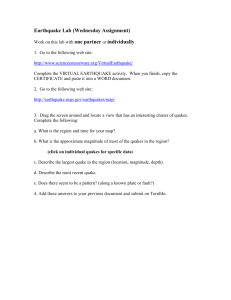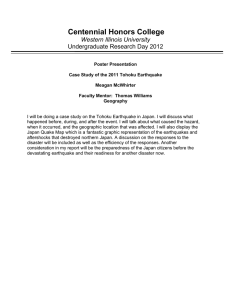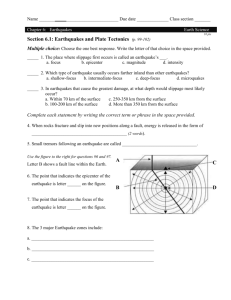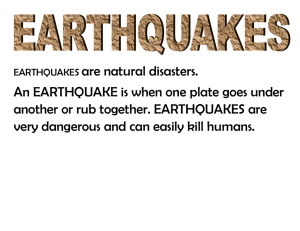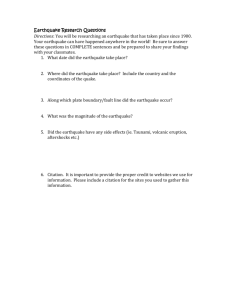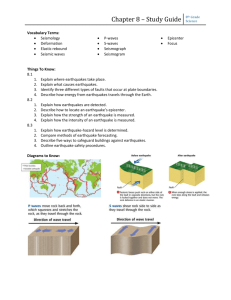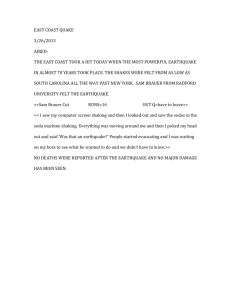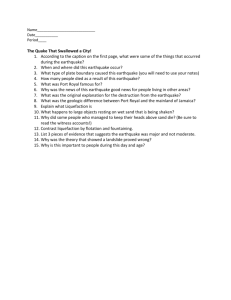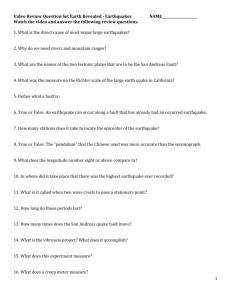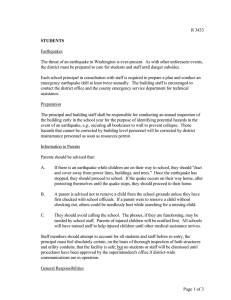File - Literacy WAGOLL!
advertisement
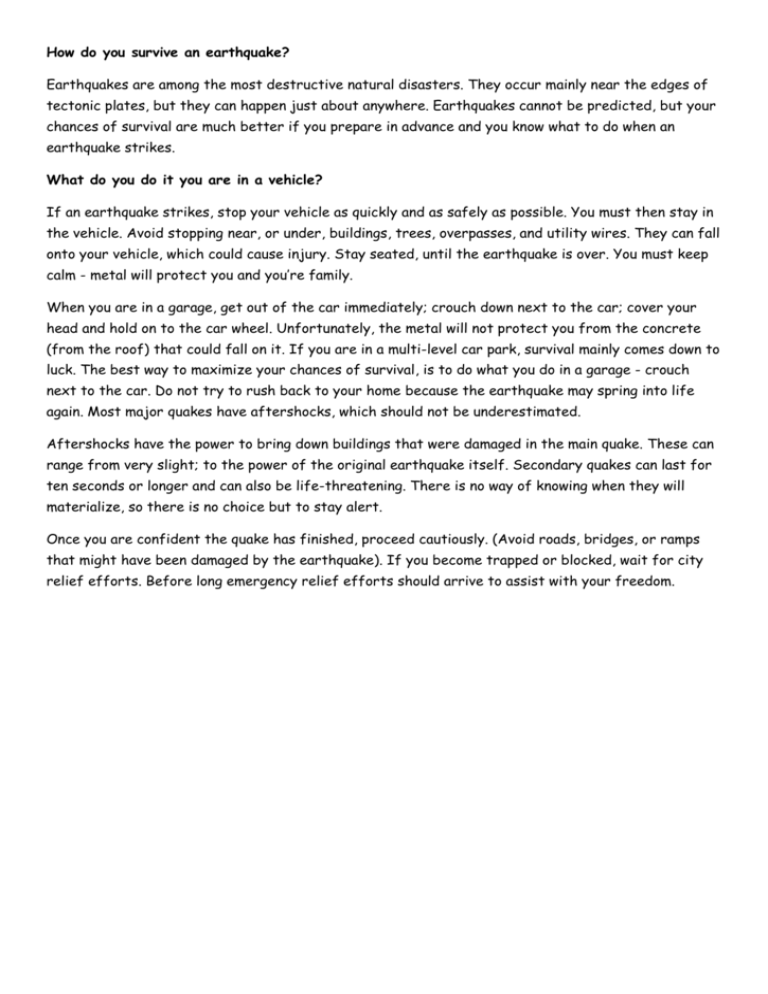
How do you survive an earthquake? Earthquakes are among the most destructive natural disasters. They occur mainly near the edges of tectonic plates, but they can happen just about anywhere. Earthquakes cannot be predicted, but your chances of survival are much better if you prepare in advance and you know what to do when an earthquake strikes. What do you do it you are in a vehicle? If an earthquake strikes, stop your vehicle as quickly and as safely as possible. You must then stay in the vehicle. Avoid stopping near, or under, buildings, trees, overpasses, and utility wires. They can fall onto your vehicle, which could cause injury. Stay seated, until the earthquake is over. You must keep calm - metal will protect you and you’re family. When you are in a garage, get out of the car immediately; crouch down next to the car; cover your head and hold on to the car wheel. Unfortunately, the metal will not protect you from the concrete (from the roof) that could fall on it. If you are in a multi-level car park, survival mainly comes down to luck. The best way to maximize your chances of survival, is to do what you do in a garage - crouch next to the car. Do not try to rush back to your home because the earthquake may spring into life again. Most major quakes have aftershocks, which should not be underestimated. Aftershocks have the power to bring down buildings that were damaged in the main quake. These can range from very slight; to the power of the original earthquake itself. Secondary quakes can last for ten seconds or longer and can also be life-threatening. There is no way of knowing when they will materialize, so there is no choice but to stay alert. Once you are confident the quake has finished, proceed cautiously. (Avoid roads, bridges, or ramps that might have been damaged by the earthquake). If you become trapped or blocked, wait for city relief efforts. Before long emergency relief efforts should arrive to assist with your freedom.
